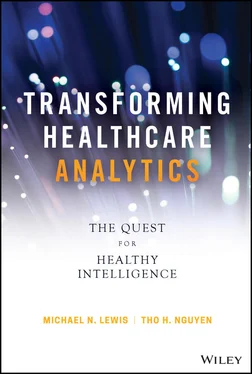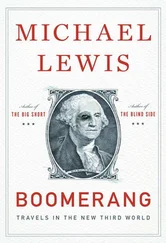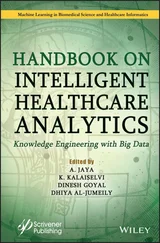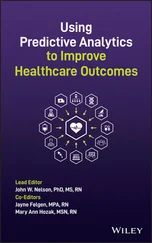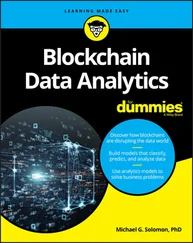What I learned from this experience is that:
Healthcare has become shallow with longer wait times and shorter face-to-face time with the doctors and clinicians with redundant processes for each touchpoint.
Clinicians have become data clerks and their notes are not well captured and not well communicated among themselves and within the healthcare ecosystem.
Healthcare data is so overwhelming due to its volume and lack of data in the same ecosystem that clinicians are unable to review and correctly diagnose the ailment and provide a cure in a timely manner.
The cost of each visit was astronomical and accumulated with every point of contact – the hospital check-in staff, nurse assistant, nurse, physician assistant, physician, and specialist. When we received the bill for each line item, we were very thankful to have health insurance; otherwise, we would have been in great debt. I can't imagine not having insurance.
Illnesses cause stressful times for families, especially the kids. Being sick and not knowing or having a care plan in sight for a cure was very traumatic for me and my daughter (who missed her mother terribly during overnight stays). My wife is a strong and patient woman who endured so much pain and agony.
The above scenario spawned the idea for this book. Mike and I have been in the data and analytics profession for over 45 years collectively and we want to educate you on concepts that can lead your organization to sustained changes and to improve clinical, operational, and financial outcomes. Over the years, data and analytics have changed considerably and have become more convoluted – particularly in the healthcare sector. Health data volumes have skyrocketed, legacy data archives are on the rise, and unstructured data will be more prevalent in the healthcare sector than in any other sector. Healthcare is the only industry that keeps all types of records from birth to end of life and that volume puts a tremendous amount of burden on healthcare organizations to maintain and manage. But it is definitely an exhilarating time that generates many challenges and great opportunities for healthcare organizations to investigate and implement new and innovative technologies to accommodate data management and analytical needs. Thus, Mike and I invite you to join us on our journey to improve healthcare outcomes with insights and to integrate data and analytics in a harmonious environment.
When Mike and I met over five years ago, we both had attended a number of conferences and presented to both business and technical audiences about solutions that help healthcare organizations to be more effective managing the exponential growth in healthcare data and more efficient by streamlining the analytical processes that provide insight-driven decisions. As we shared our experiences, we received in return an overwhelming insight into healthcare organizations' challenges and issues. The biggest and most common questions were around people, process, and technology:
What skill sets do I look for when hiring people, business analysts, or data scientists?
What can I do to challenge my staff to do things differently and more efficiently?
What are some ways to improve processing time since there is more data than ever to analyze?
How can I deliver results to my leadership team with information that is real-time and improves decision-making?
What technologies should I consider to support a digital transformation?
Is cloud the right strategy for my healthcare organization?
Is open source being implemented in other healthcare organizations?
Where does artificial intelligence and augmented intelligence fit in?
Are healthcare organizations keeping pace with other industries?
What services should I consider training my organization in to be self-reliant?
As Mike and I attended a conference in sunny San Diego, California, we had a eureka moment over a meeting. What if we wrote a book that combines real-world problems focused on data and analytics in healthcare and share with our readers the challenges and successes? Mike would bring the business perception while I would bring my technology background to provide a complete perspective. We realize there are many books about healthcare, but this book is unique in ways that connect people, process, and technology to prepare for the digital transformation in healthcare from our direct experiences and backgrounds. We approached an editor who is also a mutual colleague with this idea and concept, and she was very enthusiastic about our book proposal. After several months of negotiations and developing the outline and timeframe, the publisher accepted our pitch. Our goals for this book are to:
Share real-world healthcare problems and use cases focusing on connecting and integrating people, process, and technology to deliver insight-driven decisions.
Educate healthcare professionals in what innovative technologies are available to manage data and apply analytics with some best practices to transform your organization.
Provide a unique perspective of the future of healthcare and what to expect with the rise of digital transformation, machine learning, and artificial intelligence.
Whether you have a business or technical background, we truly believe you will appreciate the real-world use cases presented here. Before we dive into the details, we believe it is very appropriate to set the tone with what is health data and some challenges in the healthcare sector that demand the connection and integration of people, process, and technology. It is needed to maintain and sustain leadership in a very complex and growing healthcare industry.
Many years ago when I was a child, I could recall sitting in my doctor's office as my parents filled out forms about me and my health that contained fields such as name, date of birth, address, Social Security number, medications that I was taking, what is the purpose of this visit, and history of family members for each visit to each type of clinician. All of these forms have been kept in a folder that can stack up as high as the ceiling and stored in file cabinets (see Figure 1.1). When you visit the doctor and hospital, they retrieve those records, sift through all of that historical data, and review them to assess your condition. As the nurse called my name to go back to see the doctor, they would measure my weight, my blood pressure, and body temperature – all of these data points were also captured and entered in my file. Once the doctor was ready to see me, he would ask me some simple questions based on the information provided on the forms. At the same time, the doctor also evaluated and observed my physical and emotional attributes to see if any of these intangible factors provided any insights to my wellbeing, both physically and emotionally. From my pediatrician to my current doctor, all of my records have been maintained in some manner.
This photo by an unknown author is licensed under CC-BY-2.0.

Figure 1.1 Storage of Your Medical Records
Source: S.J. Howard, 2010. https://sjhoward.co.uk/in-support-of-a-national-nhs-computer-system/. Licensed under CC-BY-2.0.
With technology advancements, these forms can now be scanned, notes from paper can be entered into computers, and observations get captured in a dialogue – all of which can now be archived in electronic health systems. As I have gotten older, I had to fill out the same forms myself with the identical data points and the repetitive information continued to get captured. If you are a healthy person, you would visit your doctor once a year for a wellness checkup; otherwise, you may have additional visits when you get a cold, cough, or an injury. Unfortunately, if you encounter a serious illness such as injury, cancer, stroke, or a heart attack, x-rays and magnetic resonance imaging (MRI) are needed and these images are combined with your other data points to diagnose a problem and plan a treatment. All of these health data are kept from year to year, from birth to end of life, and become very voluminous and complex.
Читать дальше
